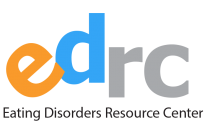The social isolation and loneliness caused by the pandemic has been hard on mental health, especially for people with eating disorders. Cut off from the outside world, many people who suffer from disordered eating become more depressed. With a record number of lay-offs leaving many Americans uninsured, affordable treatment options are slim. On the other hand, those with coverage may fear exposing themselves and their loved ones to the virus. For some, joining an online community of eating disorder sufferers may ease the anxiety of waiting out COVID-19 – and prevent relapse.

On October 24, 2020, KCBS Radio’s Jennifer Hodges sat down with EDRC Executive Director Janice Bremis to discuss COVID-19 and eating disorders. Data shows that eating disorders are on the rise. Prior to the pandemic, it was already difficult for many people to find support. Now, the chances of some vulnerable individuals relapsing are disturbingly high.
EDRC took action by transitioning their weekly support meetings to an online format. Individuals affected by eating disorders meet each Sunday and Wednesday. Group members learn about why eating disorders occur and treatment options at no cost. Discussion is positive and encouraging, with tips for mindfulness and employing recovery skills.
Bremis, who dedicates her life to increasing eating disorder awareness, emphasized that living in frightening times makes recovery challenging. To replace social interaction, some people even use their eating disorders as a source of comfort. Meeting in online spaces with others who share their struggles can ease anxiety and promote better health. When asked why attending a weekly support group is so important for people battling eating disorders, Bremis stressed the value of finding strength in numbers. “Dealing with an eating disorder is very unsettling and scary,” Bremis explains. “[But] it’s important to know that you are not alone.”
Visit the KCBS website or click play to listen to the full interview:
If you or your loved one needs support for an eating disorder, EDRC is here for you. Learn more about how you can join our compassionate online community.






